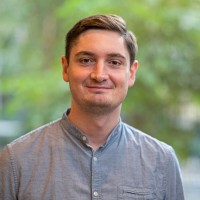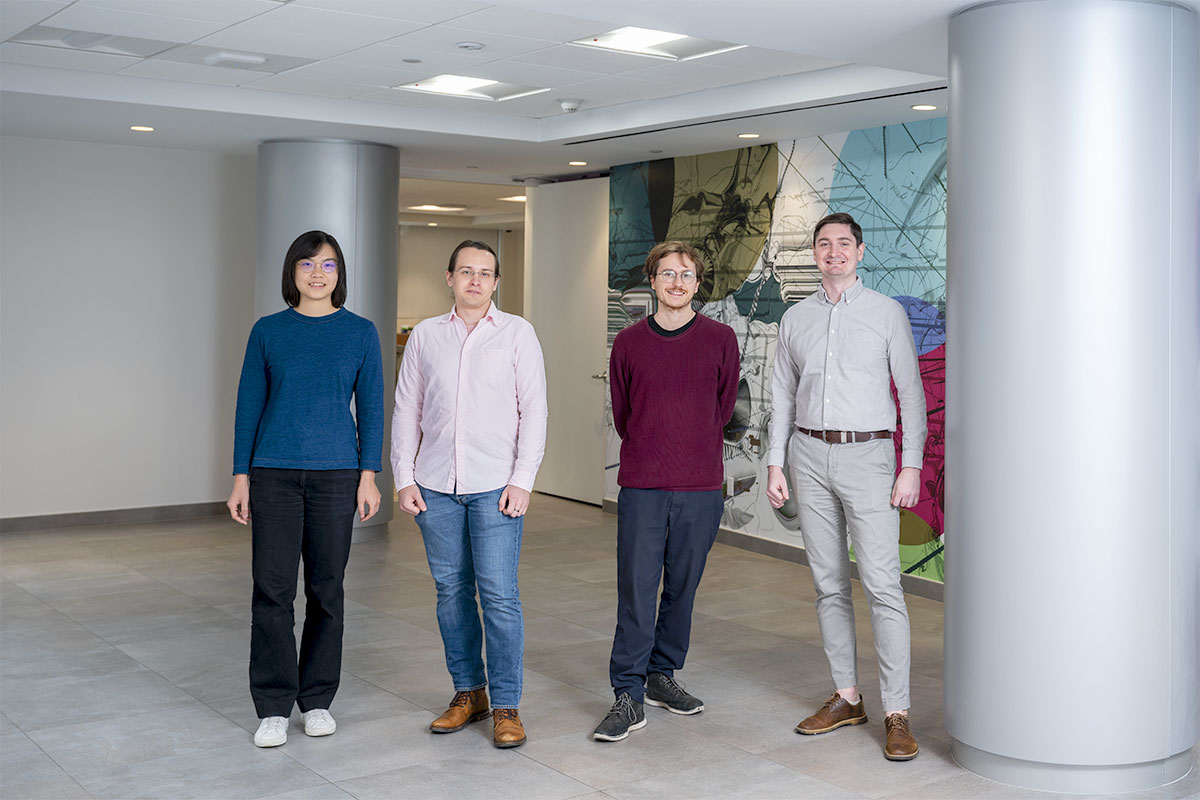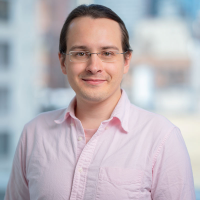The Ruslan Soldatov Lab
Research

The Soldatov Lab aims to characterize the mechanisms of cell fate decisions that coordinate tissue function and quantify how distortions of these mechanisms shape the course of cancer evolution. We are broadly interested in using a large-scale data science approach to study questions related to the organization of normal tissues and cancer, viewing it as a dynamic ecosystem of fundamental units — cells. We study the impact of stem cell heterogeneity on tissue function. In particular, we focus on the role of stem cell phenotypes, such as proliferative capacity or regenerative potential, in cancer initiation and evolution. We seek to characterize how regulatory circuits enable phenotypic plasticity to emerge, allowing cancers to evolve and evade treatments. Finally, we are interested in how the microenvironment and external insults, such as injury or pathogens, reshape cell fate decisions. To advance these questions, we develop computational methods to analyze cellular heterogeneity using high-throughput measurements at the level of individual cells. The lab leverages machine learning approaches, dynamic systems theory, and data science to gain insights into the evolution of tissue ecosystems in the context of basic and translational science.

Publications Highlights
Faure L, Soldatov R, Kharchenko PV, Adameyko I. scFates: a scalable python package for advanced pseudotime and bifurcation analysis from single-cell data. Bioinformatics. 2023 Jan 1;39(1):btac746. doi: 10.1093/bioinformatics/btac746. PMID: 36394263; PMCID: PMC9805561.
Gao T, Soldatov R, Sarkar H, Kurkiewicz A, Biederstedt E, Loh PR, Kharchenko PV. Haplotype-aware analysis of somatic copy number variations from single-cell transcriptomes. Nat Biotechnol. 2022 Sep 26. doi: 10.1038/s41587-022-01468-y. Epub ahead of print. PMID: 36163550
Petukhov V, Xu RJ, Soldatov RA, Cadinu P, Khodosevich K, Moffitt JR, Kharchenko PV. Cell segmentation in imaging-based spatial transcriptomics. Nat Biotechnol. 2022 Mar;40(3):345-354. doi: 10.1038/s41587-021-01044-w. Epub 2021 Oct 14. PMID: 34650268
Bergen V, Soldatov RA, Kharchenko PV, Theis FJ. RNA velocity-current challenges and future perspectives. Mol Syst Biol. 2021 Aug;17(8):e10282. doi: 10.15252/msb.202110282. PMCID: PMC8388041. PMID: 34435732
Seplyarskiy VB, Soldatov* RA, et al; NHLBI Trans-Omics for Precision Medicine (TOPMed) Consortium; TOPMed Population Genetics Working Group, Gilissen C, Wong WSW, Kharchenko PV, Sunyaev S. Population sequencing data reveal a compendium of mutational processes in the human germ line. Science. 2021 Aug 27;373(6558):1030-1035. doi: 10.1126/science.aba7408. Epub 2021 Aug 12. PMCID: PMC9217108. PMID: 34385354
People

Ruslan Soldatov, PhD
Assistant Attending
- Computational biologist Ruslan Soldatov develops computational methods to study cell fate decisions and somatic evolution in normal tissues and cancer.
- PhD, Institute for Information Transmission Problems (Moscow, Russia)
- [email protected]
- Email Address
Members












Open Positions
To learn more about available postdoctoral opportunities, please visit our Career Center
To learn more about compensation and benefits for postdoctoral researchers at MSK, please visit Resources for Postdocs
Get in Touch
-
Lab Head Email
Disclosures
Members of the MSK Community often work with pharmaceutical, device, biotechnology, and life sciences companies, and other organizations outside of MSK, to find safe and effective cancer treatments, to improve patient care, and to educate the health care community. These activities outside of MSK further our mission, provide productive collaborations, and promote the practical application of scientific discoveries.
MSK requires doctors, faculty members, and leaders to report (“disclose”) the relationships and financial interests they have with external entities. As a commitment to transparency with our community, we make that information available to the public. Not all disclosed interests and relationships present conflicts of interest. MSK reviews all disclosed interests and relationships to assess whether a conflict of interest exists and whether formal COI management is needed.
Ruslan Soldatov discloses the following relationships and financial interests:
No disclosures meeting criteria for time period
The information published here is a complement to other publicly reported data and is for a specific annual disclosure period. There may be differences between information on this and other public sites as a result of different reporting periods and/or the various ways relationships and financial interests are categorized by organizations that publish such data.
This page and data include information for a specific MSK annual disclosure period (January 1, 2024 through disclosure submission in spring 2025). This data reflects interests that may or may not still exist. This data is updated annually.
Learn more about MSK’s COI policies here. For questions regarding MSK’s COI-related policies and procedures, email MSK’s Compliance Office at [email protected].